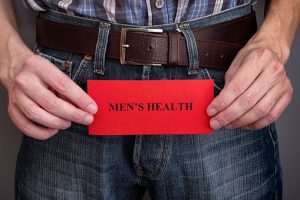
Benign prostatic hyperplasia does not increase a man’s risk of developing prostate cancer. Prostate cancer begins in the outer peripheral zone and grows outward to invade surrounding tissue. In BPH, the growth moves inward towards the prostate’s core, causing the urethra to become tighter and making it difficult to urinate.
The growth dynamics of BPH and prostate cancer determines the symptoms. BPH can have annoying symptoms, such as the inability to urinate or releasing a small amount only. Prostate cancer is referred to as a silent killer because its symptoms can take months or years to appear.
Causes of enlarged prostate
Hormonal changes that occur through aging contribute to the BPH onset. Genetics, too, can be a possible cause for BPH. The prostate continues to grow from the age of 25, but when the prostate grows too much, it can cause complications in older men.
Signs and symptoms of enlarged prostate
Signs and symptoms of an enlarged prostate include:
- Difficulty urinating
- Constant urge to urinate
- Increased urination at night
- Weak urine stream
- Dribbling at the end of urination
- Straining while urinating
- Inability to empty bladder fully
Enlarged prostate treatment and prevention
Depending on the size of the prostate and the associated symptoms, there are many different treatment options available. For example:
- Medications
- Surgery
- Transurethral resection of the prostate (TURP) – a scope removes the center of the prostate only leaving the outside
- Transurethral incision of the prostate (TUIP) – cuts are made in the prostate gland to allow easier urination
- Transurethral microwave thermotherapy (TUMT) – electrodes destroy the inner part of the prostate, shrinking it and improving urination
- Transurethral needle ablation (TUNA) – radio waves destroy excess prostate tissue that blocks urine flow
- Laser therapy
- Prostate lift
Although you may not be able to prevent the enlargement of your prostate, implementing the following measures can help ease symptoms and improve prostate health.
- Reduce beverage consumption in the evening to minimize the urge to urinate at night
- Limit caffeine and alcohol intake
- Go to the bathroom and relieve your bladder the moment you feel the urge
- Urinate at regular times
- Follow a healthy diet
- Exercise
- Keep your body temperature warm – cold temperatures promote urine retention
Also Read : Natural remedies and exercises for enlarged prostate (benign prostatic hyperplasia)